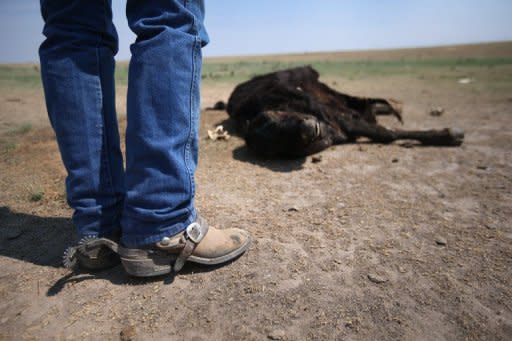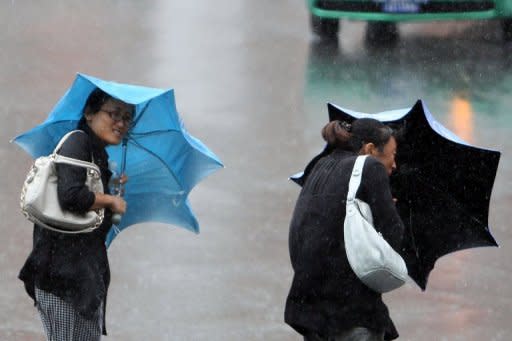Storms, drought overshadow UN climate talks
World climate change negotiators faced warnings Thursday that a string of extreme weather events around the globe show urgent action on emission cuts is needed as they opened new talks in Bangkok. The week-long meeting in the Thai capital, which was devastated by major floods last year, aims to prepare the ground for a meeting of ministers under the UN Framework Convention on Climate Change (UNFCCC) in Doha starting in November. "This meeting opens in the immediate aftermath of a deadly typhoon in the Republic of Korea and a hurricane that hit near New Orleans on the seventh anniversary of Katrina -- powerful reminders of the urgent need to lower greenhouse gas emissions," said Marlene Moses of Nauru, who chairs the Alliance of Small Island States. For small islands particularly vulnerable to climate change, "development prospects, viability and survival hang in the balance", she warned. Some experts believe the UN target to limit the rise in global average temperatures to two degrees Celsius (3.6 degrees Fahrenheit) is already unattainable. At least 19 people were killed this week by the most powerful typhoon to hit South Korea in almost a decade and thousands of people were evacuated in New Orleans as Hurricane Isaac pounded the southern US city. In the Philippines, storms and flooding from torrential rains killed at least 170 people in August, while the US Midwest breadbasket is reeling from the worst drought in more than 50 years. "Climate change and typhoons or droughts like in the United States are interlinked," said UNFCCC Executive Secretary Christiana Figueres. "These strong weather events will occur more frequently and more intensely but they are not caused by climate change. The frequency and intensity is affected by climate change," she told reporters. Scientists hesitate about pinning extreme weather events to climate change, which is a longer-term phenomenon. But they also note that worse droughts, floods and storms are consistent with models that link disruption to Earth's climate system with heat-trapping fossil-fuel emissions. They also point to other evidence that climate change is on the march, including the announcement this week that sea ice in the Arctic has shrunk to a record seasonal low this summer. No major breakthroughs are expected at the Bangkok event, an informal meeting of senior officials from UNFCCC member states, which number 193. But delegates aim to make some progress on the long road set out in Durban in December to negotiating an accord that would from 2020 bring all major greenhouse-gas emitters under a single legal roof for the first time. If approved as scheduled in 2015, the pact would become the prime weapon in the fight against climate change. In the meantime, negotiators face the challenge of reaching an agreement on a second commitment period for the 1997 Kyoto Protocol, whose first roster of legally-binding carbon curbs expires at the end of this year. Developing countries meanwhile will pressure rich nations to provide financing and technology to help them adapt to the impacts of climate change. "We need massively increased finance for adaptation and for action to reduce emissions and we need to set up a proper international co-ordination process to deliver resources for adaptation to those in most need," said the chair of the Least Developed Countries group, Pa Ousman Jarju of Gambia. "We cannot live with these issues being deferred until a new agreement is negotiated in 2015 and that would not even come into effect in 2020," he said.





